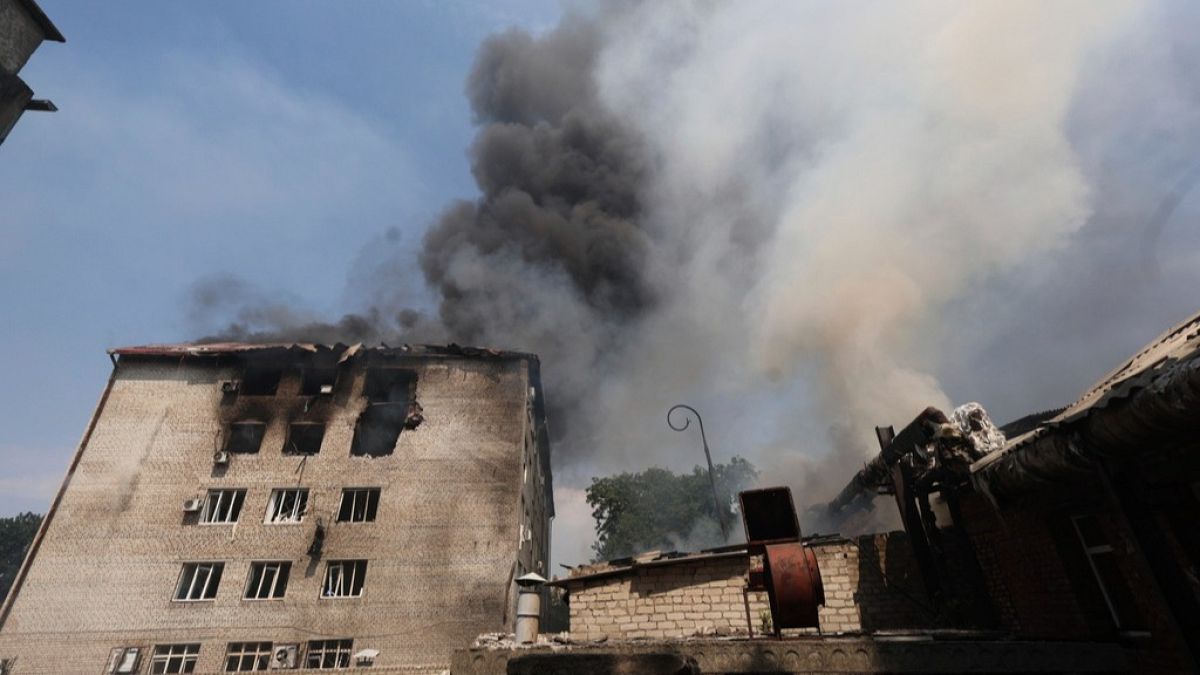

In a series of unsettling developments across the globe, the conflict between Russia and Ukraine escalated with a significant aerial offensive, while in the Middle East, violence continues to impact the lives of residents and maritime operations in Gaza and the Red Sea.
On a recent night, Ukraine withstood an immense aerial assault by Russia, marking one of the most intense bombardments during the ongoing conflict. The Ukrainian air defense systems were put to the test as they successfully intercepted and neutralized the majority of the threats. Nonetheless, the nation’s defenses were challenged by the lack of sufficient supplies of US Patriot missile systems, which led to six Kinzhal aeroballistic missiles breaching Ukraine’s protective measures. Despite the barrage of 741 drones and missiles launched by Russia, Ukraine’s defensive efforts minimized damage and casualties, underscoring their resilience amidst adversity.
The broader international context adds a layer of complexity, as debates within the United States government regarding military aid to Ukraine continue to ripple through diplomatic circles. The Pentagon’s decision to halt certain supplies has sparked discussions over decision-making processes and the potential impacts on Ukraine’s ability to defend itself. These deliberations highlight the interconnectedness of global alliances and the influential role of international policy decisions in regional conflicts.
Meanwhile, in the Middle East, the humanitarian situation continues to deteriorate as airstrikes in Gaza exacerbated the crisis. During one night, Israeli strikes resulted in the tragic loss of at least 20 lives, including children. This development adds to the daily challenges faced by humanitarian workers and healthcare providers in the region, as they deal with frequent mass casualty incidents. The situation underscores the urgent need for sustained diplomatic efforts and dialogue to mitigate suffering and foster peace.
Further compounding tensions in the region was an assault on the Red Sea, involving the Eternity C cargo ship. The vessel, operated by a Greek company, came under attack, presumed to be from Houthi forces, using drones and rocket-propelled grenades. This violent encounter led to the ship sinking and resulted in the loss of several crew members’ lives. Fortunately, a rescue mission succeeded in saving some individuals, who had spent more than a day in the water before being retrieved.
The incidents in both Ukraine and the Middle East serve as poignant reminders of the fragile nature of peace and the immediate impact of conflict on the lives of civilians and international communities. These situations signify the importance of continued diplomatic engagement and international cooperation to navigate complex global crises.
In Ukraine, while the air defense strategies demonstrate strong tactical capabilities, continued support from international allies remains crucial to sustaining this defensive stance. Likewise, in the Middle East, the prioritization of humanitarian relief and peacemaking initiatives is vital in alleviating the human cost of ongoing hostilities.
This confluence of events calls upon the international community to approach these issues with care, seeking peaceful resolutions and fostering unity. With global attention, coordinated efforts, and mindful diplomacy, there lies potential for progress towards lasting peace in troubled regions, offering hope and stability for the future.
Source: {link}
